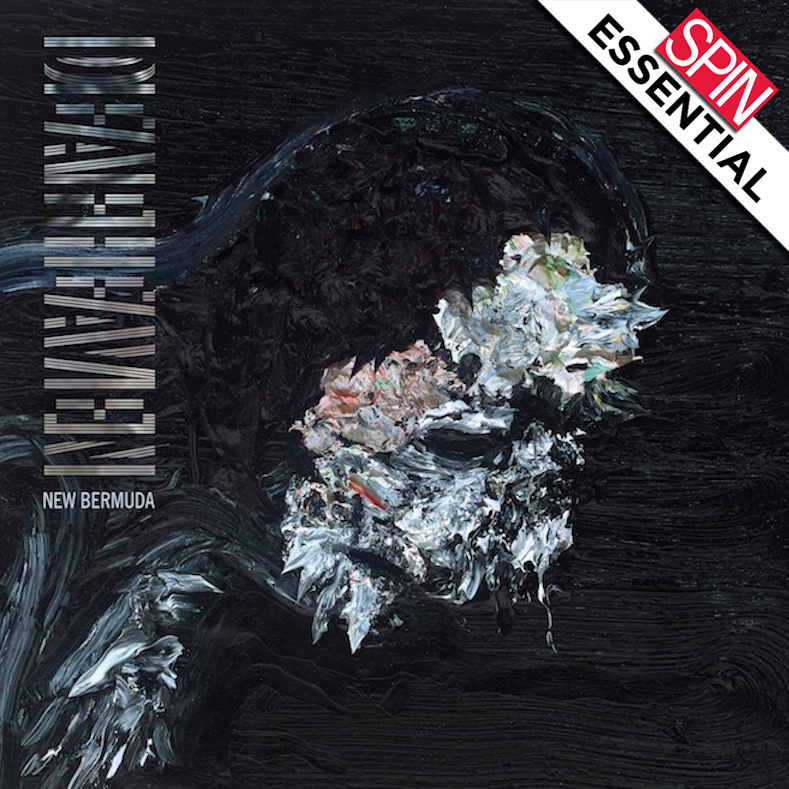Release Date: October 02, 2015
Label: ANTI-
Deafheaven have been the subject of many bold proclamations, to the point where merely having any opinion about them is draining. Here is one take you may have overlooked: They are rightfully a metal band. They are not subverting metal or making a mockery of it; they are part of the paradigm for metal in this age. Metal has always imbued its electric fury into other genres to create some amazing hybrids. Think of how thrash’s exemplars gave hardcore’s boundless rage structure and progressive rock vitality. Deafheaven were not the first to connect the dots between black metal, shoegaze, and post-hardcore, but their 2013 breakout, Sunbather, never used any of those as a crutch, and suggested a new direction entirely. New Bermuda both expands their range and sees them coming further into their own.
In spite of Bermuda leaning less on the shoegaze that has defined Deafheaven, the album still has some of their most beautiful moments and tightest songwriting. Their past records have structures similar to Motörhead’s Overkill, leading off with the most bombastic song — “Libertine Dissolves,” “Violet,” and “Dream House” have all achieved “Where were you when you first heard them?” status. New opener “Brought to the Water” is a solid song that has many of the strengths of “House,” but Bermuda reveals itself more and gets better as it goes on. “Luna” stretches out the premise of “Water” and throws in a rapturous ending, the sort where frontman George Clarke will fall into a crowd to bless his followers personally. There’s noticeable nods towards the band’s roots, with guitarist and primary songwriter Kerry McCoy unleashing his inner Black Album on “Baby Blue” and pairing the breathtaking end of “Luna” with a streetwise intro riff straight out of the Bay Area outfit’s grittier days. And like Metallica in their prime, Deafheaven are not only willing to mix the grandiose with the ugly, they make it their life’s work. You can’t fake that ambition.
In the midsection of “Come Back” is a slow-motion breakdown, a surging pit of bodies slamming into each other though an art-cinema lens. It’s the sound of the two lovers from Sonic Youth’s “Dirty Boots” video stage-diving into the unknown, where grit meets the sublime. “Gifts for the Earth” beats Envy, the Japanese post-rock/hardcore group who are a key influence, at their own game — basement post-hardcore becomes stadium-like. It’s introduced — and defined — by one of McCoy’s most urgent guitar lines, clean jangles that ring louder than any of the heavy blasts on here. You see them shedding the last of their Deathwish days, blooming into something more anthemic, more uniting. Kids in Integrity shirts who had a budding eye for beauty are now adults with broader worldviews and an increased capacity to express them. All of this is the product of not just Clarke and McCoy, the band’s core, becoming more confident, but also what began as their live band — bassist Stephen Clark, guitarist Shiv Mehra, and drummer Daniel Tracy — going from session men to creative partners who jelled with the duo in their own right.
Bermuda, and Deafheaven’s entire oeuvre, should not be considered “metal for people who don’t like metal.” It’s a lazy crutch to not only dismiss Deafheaven’s undeniable crossover appeal, but to also deny the ever-expanding power of metal itself. Let me ask you: Are you into intense emotional displays, instrumentation so forceful yet never overbearing, and most importantly, riffs that take over your livelihood? Stop sitting on the fence — you like metal, and Bermuda is ace metal.





